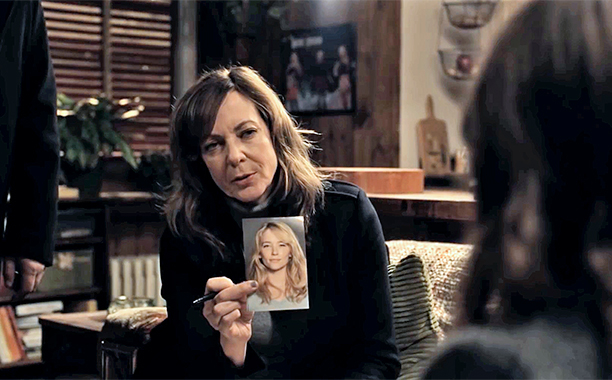
Rachel–a divorced alcoholic portrayed with aplomb by Emily Blunt–rides the train into New York City everyday. She watches a perfect couple every morning and evening; she has attached an unhealthy fascination to the strangers, Megan and Scott Hipwell, as they remind her of everything she lost not so long ago. Two doors down from the Hipwells live Rachel’s ex-husband Tom and his new spouse, Anna, along with their newborn baby. Megan Hipwell goes missing, which sets off the plot of the movie, and it is here that we run into a severe speed bump: as a viewer, I couldn’t care less that this woman was missing on any level.
This apathy is central to my problems with The Girl on the Train, a movie with a solid premise that is executed in the most bizarre and tedious of fashions. If you thought my opening paragraph was an information dump, it’s nothing compared to the strenuous and confusing set-up this movie’s first act thrusts upon viewers. Playing your cards tight to the chest can often be a good strategy in a mystery thriller, but one gets the feeling that’s not what The Girl on the Train is going for at all. It’s not that the movie is withholding information purposefully (it’s not), it’s that it’s giving us too much information in a barely comprehensible way.

The movie keeps the narrative framing of the novel it was adapted from, giving Rachel, Megan, and Anna all their own point-of-view segments. None of these three characters are remotely likable, and the climax of this movie does not justify the amount of time we spend with any of them. Despite all of the characterization the film attempts to do, these women never come across as anything more than tropes. It’s remarkable to me that a film with three prominent female leads squanders any sense of female drive, purpose, or agency.
As for the central mystery itself, I must return to my earlier point and restate how uninteresting it is. This film was marketed as “the next Gone Girl“–it does not achieve success in that regard at all–allowing every viewer everywhere to know that a big twist reveal will be coming. Unlike Gone Girl, however, that twist doesn’t arrive until very late in the game; by the time it does arrive, director Tate Taylor has already bored us to tears, and the twist itself is not compelling enough to elevate any of the storytelling decisions that preceded it.

I’m astounded that a mystery thriller filled with so much sex and edge ended up so boring, but I can’t put it any other way: this movie is tedious. Much of nothing happens for the middle fifty minutes of the film that has any actual impact on the plot.
There’s a good movie in here somewhere, but Tate Taylor was not the right director for this material. Emily Blunt is quite good (that’s an understatement, actually, as she is terrific in her role), but the rest of the cast is either undercooked or completely over the top. If you feel like you need to see it, wait for it to hit Redbox in a few months. In the meantime, just stay home and rewatch Gone Girl.
Grade: D